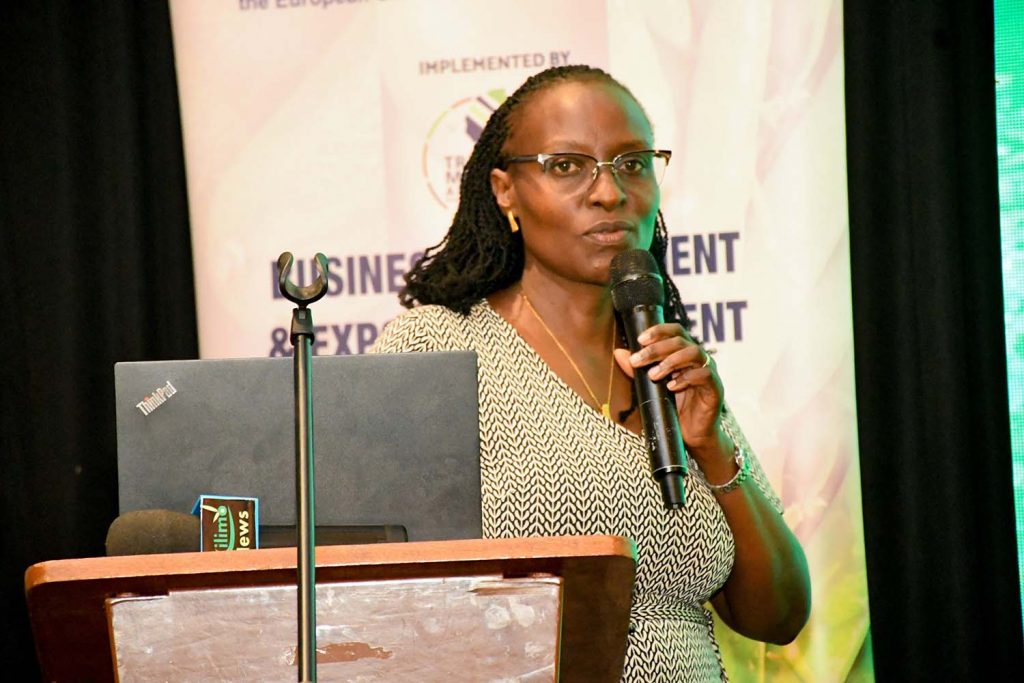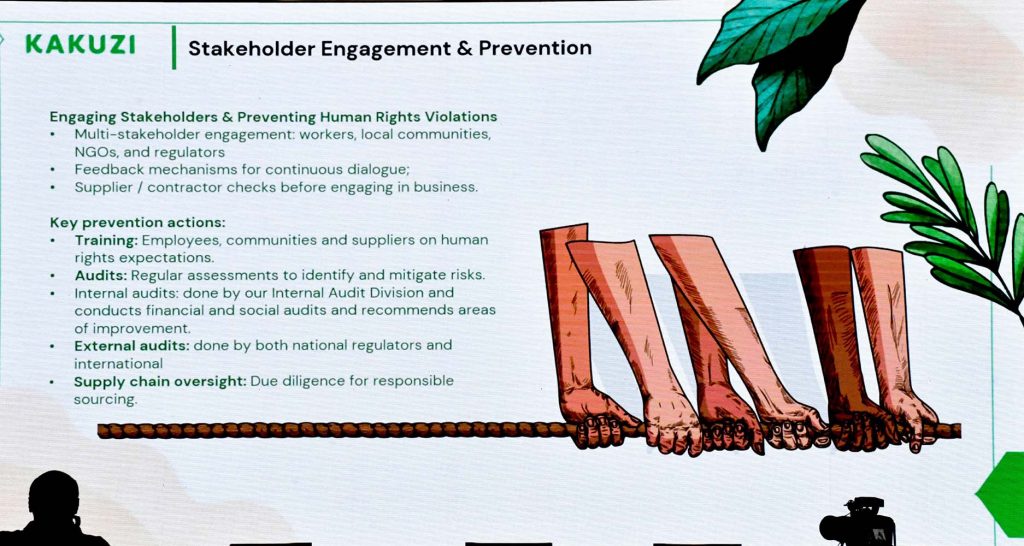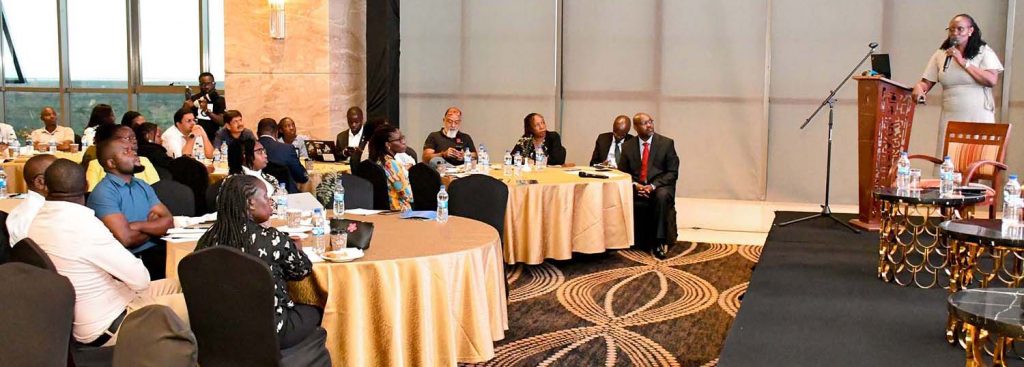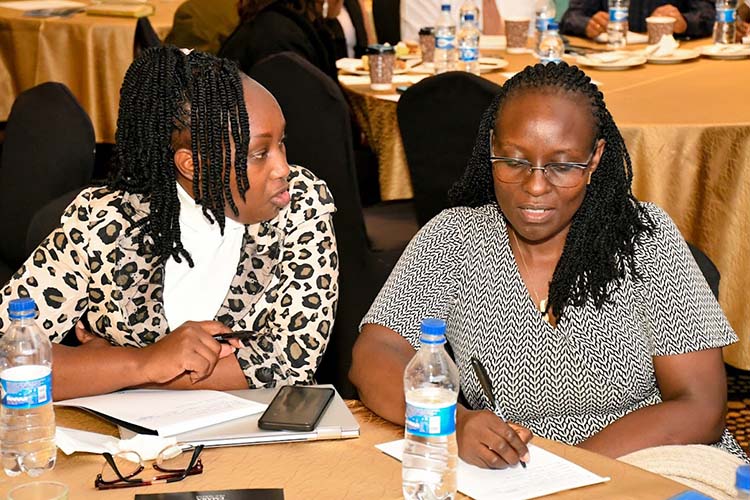
Bʏ Mᴀʀʏ Mᴡᴇɴᴅᴇ,
Human rights and social sustainability have become unavoidable conversations in Kenya’s fresh produce and floriculture sectors. With global markets tightening compliance standards and buyers placing more scrutiny on how farms treat their workers and communities, companies can no longer afford to treat these issues as side matters. It is against this backdrop that Kakuzi PLC openly shared its experiences during the recent forum organized by the Fresh Produce Exporters Association of Kenya (FPEAK) to mark its 50th anniversary.
In a candid presentation, Anastacia Mwenza of Kakuzi unpacked the company’s human rights journey, tracing how it responded to serious allegations in 2020 and the lessons it continues to draw from that experience. Mwenza emphasized the importance of building fair, accountable systems within agricultural businesses while maintaining genuine respect for the people and communities they depend on.
“We are here because we want to discuss social sustainability. We want to ask ourselves, what is social sustainability? And you will all agree with me that it is very important for our organizations, for our companies, to ensure that we maintain and promote the stakeholders that we deal with while we ensure that our systems are just and fair and accountable,” Mwenza remarked while setting the tone for her presentation.

Addressing a Difficult Past
In 2020, Kakuzi found itself under intense scrutiny over allegations of human rights violations. The situation, Mwenza admitted, was a critical moment for the company’s future. “Our reputation was at stake and we were wondering what next,” she recalled.
Rather than ignore the issue, the company responded by implementing structured reforms aimed at addressing both actual and potential risks within their operations and wider environment. The first step was a comprehensive human rights impact assessment, which identified vulnerabilities in their systems and recommended corrective action.
In addition, Kakuzi revised its Human Rights Policy to align with both national and international frameworks, including the UN Guiding Principles on Business and Human Rights, the International Labour Organization (ILO) conventions, the UN Global Compact Principles, and the Constitution of Kenya.
“In our human rights policy, we commit as a company to respect human rights in all our operations and also protect human rights defenders,” she said. The policy also covers the promotion of diversity and inclusion and provides clear mechanisms for remedying adverse impacts.

A Two-Tier Grievance Mechanism
Central to Kakuzi’s reform was the establishment of an operational grievance mechanism known as Sikika, a Swahili term meaning “to be heard.” According to Mwenza, Sikika offers a confidential, independent, and accessible platform for employees, suppliers, communities, and other stakeholders to raise concerns.
The grievance mechanism operates on two tiers. Tier one addresses labor-related issues internally within Kakuzi, while tier two handles serious human rights complaints through an independent process free from company influence. Tier two cases are reviewed by a Human Rights Advisory Committee, which reports directly to the company’s board of directors. “We localize it so that everyone can feel included,” she emphasized.
Embedding Accountability and Transparency
Kakuzi has integrated human rights considerations into its sustainability reporting and business governance structures. “We ensure that we have aligned our reporting with human rights just to ensure that we are transparent, accountable, and we have ethical governance,” Mwenza stated.
The company publicly shares its human rights impact assessment, updated policies, and sustainability reports on its website in line with UN Global Compact’s Communication on Progress Guidelines.
Performance is tracked through internal and external audits, with key performance indicators set to measure the impact of human rights management systems. This ensures continuous improvement and transparency in dealings with stakeholders.

Capacity Building and Supply Chain Due Diligence
Recognizing the importance of preventive action, Kakuzi runs continuous training programs for employees, community members, and suppliers on human rights expectations. The company also carries out both internal and external audits of its grievance mechanism to ensure it remains effective and credible.
“We have an oversight on our supply chain by carrying out due diligence so that we ensure that we are sourcing responsibly,” Mwenza noted, adding that performance is closely monitored using established metrics.
Reflecting on the challenging period in 2020, Mwenza credited the company’s survival and recovery to the support of responsible business partners. “Some of our partners stood with us and helped us get out of that difficult situation. We had buyers who gave very convincing statements of our state of affairs and also our host today, FPEAK, stood with us a lot,” she said.
While concluding, she urged growers and agribusiness leaders to carefully consider the nature of partnerships they build. “It is therefore important to ask ourselves, who are we collaborating with? Is it someone who can help us in our sustainability journey?”
